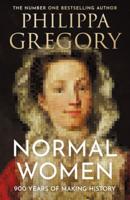Publisher's Synopsis
""Romanism and Rationalism as Opposed to Pure Christianity"" is a book written by John Cairns in 1863. The book is a critical analysis of two major movements that were prevalent during the 19th century - Romanism and Rationalism. Cairns argues that both of these movements are opposed to the principles of pure Christianity.The book is divided into two parts, with the first part focusing on Romanism and the second part on Rationalism. In the first part, Cairns discusses the history and doctrines of the Roman Catholic Church, including its views on the authority of the Pope, the sacraments, and the role of tradition. He also critiques the Church's practices, such as the veneration of saints and the use of indulgences.In the second part of the book, Cairns turns his attention to Rationalism, which he defines as a rejection of supernaturalism and a reliance on reason and science. He critiques the views of Rationalists on topics such as the existence of God, the nature of Christ, and the authority of the Bible.Throughout the book, Cairns argues that both of these movements are incompatible with the principles of pure Christianity, which he defines as a faith based on the teachings of Jesus Christ as found in the Bible. He argues that true Christianity is characterized by a belief in the supernatural, a reliance on faith, and a commitment to living a moral life.Overall, ""Romanism and Rationalism as Opposed to Pure Christianity"" is a comprehensive critique of two major movements that were prevalent during the 19th century. Cairns' analysis is still relevant today, as both Romanism and Rationalism continue to be influential in modern society.This scarce antiquarian book is a facsimile reprint of the old original and may contain some imperfections such as library marks and notations. Because we believe this work is culturally important, we have made it available as part of our commitment for protecting, preserving, and promoting the world's literature in affordable, high quality, modern editions, that are true to their original work.






